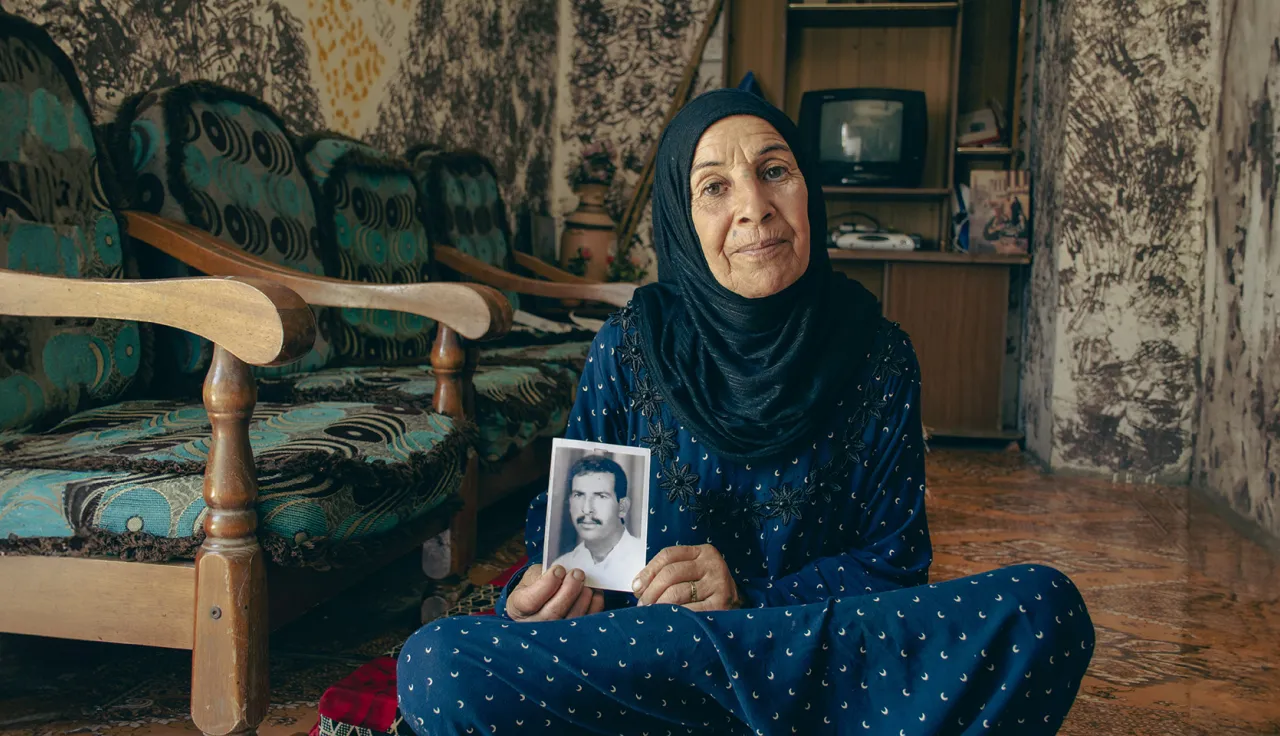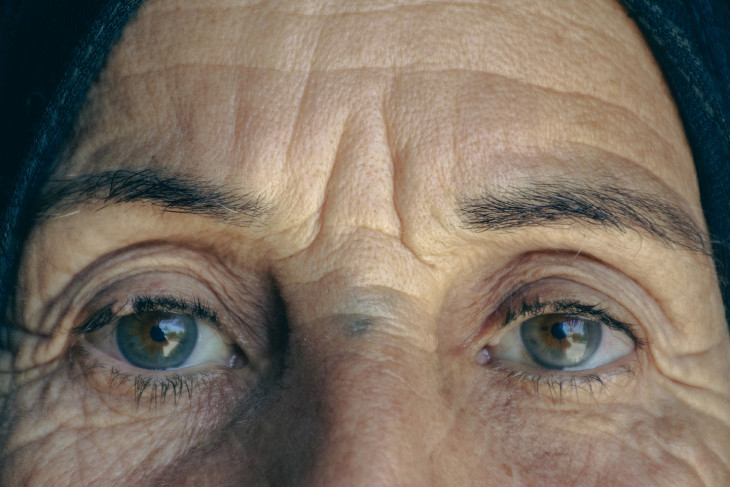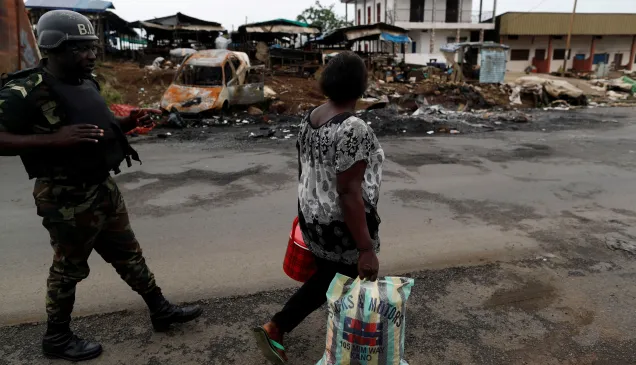Iraq: Women of families of missing never stop searching, never stop living

Iraq is one of many countries that have gone through numerous wars and armed conflicts, leaving hundreds of thousands of people, mostly men, unaccounted for. This has resulted in women taking on the responsibility of running households and acting as “the man of the house” in some cultures where a woman is not even allowed to ride a taxi by herself.
In 2016, hundreds of people in Saqlawiya district, in the governorate of Anbar in western Iraq, left the town to seek safety elsewhere, fleeing amid clashes and approaching bullets. Groups of men and women walked along the Saqlawiya cemetery – a brother asking his sister to take care of herself and his children, a husband reassuring his wife and giving her some money until they meet again, a father glancing at his daughters one final time and a son leaving without being able to give his mother a farewell embrace.
Overnight, hundreds of women had to step up and take on the responsibility of those missing men, becoming the providers and the "pillars" of their households. The challenges these women have faced over the years – psychological, psychosocial, emotional, economic, and legal – did not defeat them but have shaped their resilience. "I want them to come back and find us doing great; that would make them happy," says Asia, a 45-year-old single woman, waiting to hear about her four missing brothers.
ASIA
The eldest among four brothers and four sisters, Asia took on the responsibility of raising her siblings and caring for her ailing mother from a young age when her father passed away. She took on the roles of their mother, sister, and father. Asia gets nostalgic about their life before the conflict. As the sun set, the anticipation of her brothers' return from work filled the air. But now, the fading daylight only brings silence. "Meals just don't taste the same anymore," she says.
Despite that, Asia's days continue to be busy as she brings up her nephews, Layth and Gaith. In the absence of their father and the abandonment of their mother, Asia is determined to provide them a normal childhood; she has enrolled them in a school and guides their religious Islamic upbringing.
Asia says she has come a long way since the day her brothers disappeared. She faced difficult times challenging societal norms, from riding a taxi and buying groceries to attending doctors' appointments and court sessions by herself. The responsibilities Asia assumed may appear ordinary or insignificant to some, but for her, they meant standing in opposition to societal norms and challenging traditional expectations and judgements.
One of her greatest challenges used to be taking her nephews to the barbershop. With no man in the family, she would hesitate to wait by herself in the male-dominated space. "Now, I am unfazed even if there are 60 men in the barbershop! I take my seat and wait for the boys until they're done," she says.
Asia is one of the 24 people from Saqlawiya participating in the Saqlawiya Accompaniment Programme of the International Committee of the Red Cross (ICRC) to become Accompaniers. This programme aims to help families of the missing to deal with emotional, economic, legal, and administrative challenges and brings them together, providing them the support they need.
HAMDA
While the families of the missing share common challenges, their individual stories are unique. Hamda, a 68-year-old woman, speaks of her missing husband, Ismael. Her strength and determination shine through as she says, "I'm tough; I've fastened my belt and gathered up my strength," referring to the traditional image of tying a belt around the waist for support during crises.

HAMDA, the oldest woman in the Accompaniers programme. Layla Mirzah/ICRC
Hamda also finds humour in life's twists. Her marriage was arranged traditionally, and on the day of the wedding, her in-laws brought over one of their old wedding dresses, applied makeup and styled her hair, "may God forgive them as they didn't even take me to a beauty salon!" she states trying to sound upset but clearly holding back her laugh. She recalls her wedding day, when her husband's vintage car broke down on the way to pick her up and that there was nothing for dinner. She recalls with a chuckle how she had to ask for an uncooked eggplant from her husband's field out of sheer hunger. Hamda goes on, sharing a photograph of her husband and says with a mix of eagerness and jest, "don't you dare suggest he's handsome, or I might find myself missing him all over again."

Hamda holding her missing husband's picture. Layla Mirzah/ICRC
She describes her pre-conflict life as being completely content. Ismael worked as a gardener and brought back a daily wage of 7,000 IQD. Together they raised Ali, Ismael's nephew, who is now 25. She misses their shared moments – sitting together, watching Ismael ride his bike to work and return with groceries. Now, as she wakes up early every day, tends to the farmland, starts the water pump, and provides for the family, she says, "I keep fighting for the sake of my boy and our lives." Unsure of the well-being and whereabouts of Ismael and the other men, Hamda prays for them alive or at peace. She has never skipped a session of the Accompaniment Programme and is determined to share her insights about life, resilience, and support with others in similar circumstances.

Hamda and her sister-in-law Ilham. Layla Mirzah/ICRC
Asia, Hamda and all the other women with missing loved ones have undoubtedly faced the unimaginable. Despite their individual differences, one thing is certain: their undeniable resilience and the hope of the return of their missing loved one.



